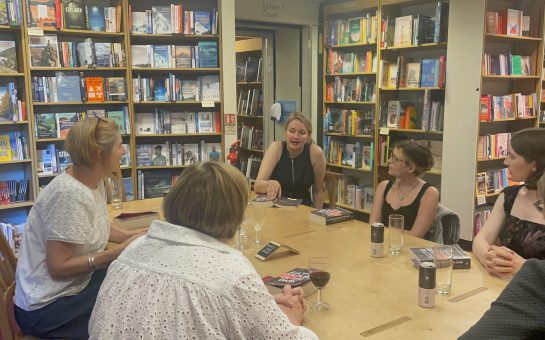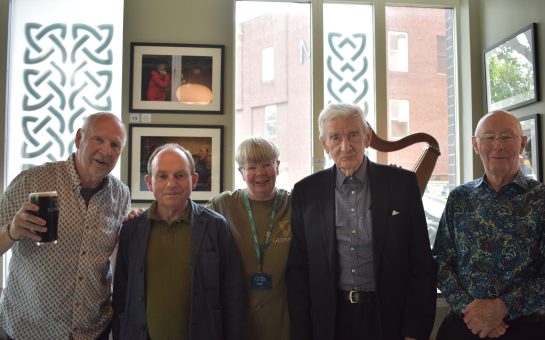Arts Council England took a 29.6% cut in its government funding in 2011.

When Margaret Thatcher visited a university in the 1980s, she asked a student what she was studying and when the answer was Ancient Norse Literature, Thatcher’s dismissive response was ‘What a luxury!’
Compare this attitude to the recently re-elected Barack Obama’s stance on arts education outlining the power of the arts and humanities in fostering creativity in developing minds.
In the UK, the government’s funding cuts to arts organisations across the country have hit the industry hard.
In 2011, Arts Council England (ACE) took a 29.6% cut in its government funding and passed on 15% of these cuts to the arts as a whole.
Sam Gough, of ACE, said: “Great art and culture inspires us, brings us together, and teaches us about ourselves and the world around us.
“The cultural sector is a credit to Britain. It is a vital part of our economic success – delivering on a global and local scale.”
ACE, which “champions, develops and invests in artistic and cultural experiences that enrich people’s lives”, will invest £1.4billion of public money and an estimated £1billion from the National Lottery to ensure the sector remains resilient.
Eight unions, whose members have been directly affected by the cuts to the arts, have set up lost-arts.org to keep a running total of the money lost to the arts and record jobs under threat.
A spokesperson for Lost Arts said: “We are not saying that the Arts are more important than other sectors. We just want to make sure that the effects of these cuts are properly recorded and publicised.
“Our aim is to show what we could be losing forever, on a day by day basis.”
Wimbledon’s Polka Theatre recorded a loss of £42,018 from its funding in 2011.
However, it is in a better position than many other organisations – the London Borough of Merton provided £60,000 this year.
Merton Council’s Cabinet Member for Education Martin Whelton said the theatre also received £580,000 from the Arts Council and there are no plans to reduce funds until after 2014.
So will funding cuts to the arts coupled with the government’s decision to increase university tuition fees lead more and more young people to forego higher education altogether?
UCAS figures show a 16.4% decline in applications for Creative Arts and Designs courses in 2012 from the previous year.
Councillor Whelton said: “As an arts graduate myself, I believe that all degrees are of equal worth. We should be encouraging young people to go to university.”
He explained the tripling of tuition fees to £9,000 was a ‘retrograde step’, leaving students with a crippling debt upon graduation.
Supply teacher Shuhena Begum, 25, said although the arts are well promoted in London schools, the cost of higher education is a huge factor.
“I have seen a massive improvement in terms of resources – theatre productions and great trips to museums and galleries,” she said.
“Most students tell me they choose what they are good at and what they enjoy, but those students on the fence may choose to do a degree based on employment prospects rather than enjoyment.”
Fiona Long, 34, said she first studied Psychology because she wanted to be sensible and find a career that would pay the bills.
“I eventually realised how incredibly unhappy not making art was making me and so I eventually did what I had to do,” she said.
Ms Long graduated from the Wimbledon College of Art, part of the University of the Arts London, in 2010, but said finding employment afterwards was a ‘huge struggle’.
“When it got to the point that I couldn’t even get bar work or an unpaid internship, I planned another strategy and set up my own artist run space with a group of artists.
“I’m a massively hard working and persistent person so my career is going pretty well now but I was very hungry during my first year or so after graduating.”
She thinks arts degrees are seldom a financially viable option and the key was putting more money into the arts.
“The thought of paying back enormous tuition fees and struggle that much to make ends meet must put people off.
“Just look at what investment in sport did to our performance in the Olympics. Investment brings results.”
Freelance art technician Warren Andrews, 23, thinks the government needs to shift the way it looks at the arts.
Mr Andrews said the actions and rhetoric of politicians like Michael Gove are damaging the arts more than the government’s fiscal policy.
He added the way funding is awarded is more worrying than the lack of money available – art projects, like his own, are hindered by the funding bodies, who put pressure on applicants to spell out in extreme detail exactly how the project will work.
“The arts are being shifted into the periphery of our society, making it into a play thing of the rich, rather than an essential part of the dialogue that all citizens, regardless of class, need to be engaged with,” he said.
“It will be studied by the privileged, only accessible to those who can afford to not worry about employment after studying.
“I studied Art because I have always felt that the arts have the potential to be a vehicle for great change.”
He explained the art education system at the moment discourages risk taking and more should be done to encourage non-traditional career paths to art students.
Also a graduate of the Wimbledon College of Art last year, he said finding employment after finishing university was ‘fairly painless.’
“The arts are a huge business, and finding flexible employment as a freelancer on the under belly of the beast is easy if you are willing to work hard and live hand to mouth when there is not a lot of work around.”
But the questions remains – can the ‘beast’ remain strong if cuts continue?
Follow us on @SW_Londoner




